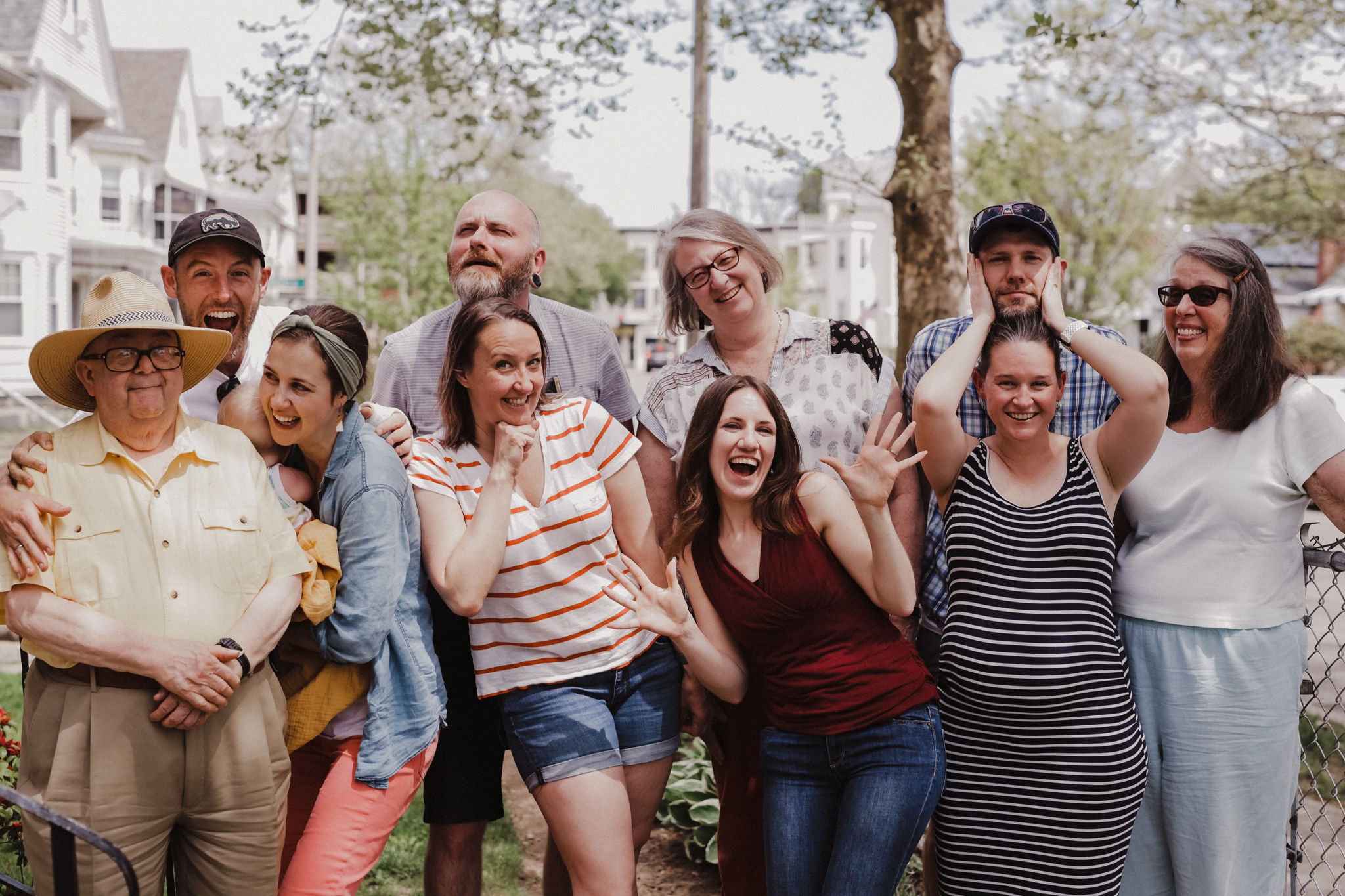Why isn’t my church talking about race?
Photo credit: Shaun Menary via Lightstock
Many white Christians in evangelical churches feel alone in their desire to talk about race
by Megan Lietz, Founding Director, Race & Christian Community Initiative
It came from the look in the pastor’s eyes, the awkward pauses in the conversation, the tone that, while appropriate to the passing ear, couldn’t help but feel patronizing. Here I was again, having my faith held suspect because I believe Jesus calls Christians to engage in issues related to race.
At that moment, I knew I had about 30 seconds to establish I was “one of them.” To assert my faith and prove I really am a Bible-believing Christian. There was no time to share that I was born and raised in white evangelicalism, with my teenage years defined by youth conferences and summer missions trips, WWJD bracelets and promise rings. There was no time to mention I believe the Bible is the Word of God and that I learned to study it at evangelical colleges and seminaries. No time to talk about how much my faith means to me, what it has brought me through, or my deep love for Jesus.
It was as if none of that mattered. Certainly, none of it was seen. All it took was the word “race,” and I was written off as a “liberal.”
It was all right. It was a brief interaction with a pastor I had never met before and would probably never see again. Yet it represented a painful reality I often hear about from white brothers and sisters in theologically conservative churches.
“It was as if none of that mattered. Certainly, none of it was seen. All it took was the word ‘race,’ and I was written off as a ‘liberal.’”
One brother shared he feels the discipleship he received did not prepare him to engage our multiracial reality. Another sister said she had to leave her beloved church community after many years because she no longer feels at home in an environment that regards race as a side issue.
The challenges white folks encounter when exploring issues related to race don’t compare to the pain and oppression experienced by people of color. Yet, it is essential for white people to learn how to navigate the obstacles we encounter so we can be better positioned to experience and contribute to racial healing.
Many white brothers and sisters who participate in the Race & Christian Community Initiative (RCCI) often express how refreshing it is to be able to talk about race in the context of Christian community. Sadly, even though these issues are coming up in conversations around the water cooler and blowing up their news feeds, they’re not able to discuss race in their congregations. It’s not mentioned from the pulpit, explored in Bible studies, and certainly not a topic for casual conversation.
Even if it is explored at those lamentable moments when racial violence captures our collective attention, the conversation’s life cycle often mirrors that of the news cycle: a one-off here, a one-off there — reactive events choked out by donor pushback and competing priorities.
When churches don’t talk about race, white folks who care about the issue can often feel isolated at best. Well-meaning comments about “slippery slopes” and how “race is a distraction to the gospel” can make us feel frustrated, suspect, or unwelcome. It can even lead to a crisis of faith as we start to believe the lie that the Living Word does not speak into the realities of racial injustice.
Engaging issues related to race from a biblical perspective does not cause us to lose our faith. It helps us follow Jesus more faithfully.
White evangelicals’ disengagement from race has little to do with Scripture. On the contrary, the Scriptures we highly esteem speak abundantly into the issues of unity, diversity, ethnicity, culture, power, oppression, healing, and justice. Our disengagement can be explained — not by God’s heart — but by the result of social and historical realities.
For example, as members of the dominant culture in the U.S., we often don’t have to think about race. Our social location can make us oblivious to the realities of racism.
“The Scriptures we highly esteem speak abundantly into the issues of unity, diversity, ethnicity, culture, power, oppression, healing, and justice.”
Closely related to this, white folks tend not to explore race in our theology. This dynamic is especially problematic when most Christian educational institutions center Euro-American theology as normative and comprehensive. It has left many Christians less aware of God's heart for justice and how the interconnected body has experienced the God of justice in their lives.
The fundamentalist-modernist controversy of the 1920s and ’30s led theologically conservative Christians to largely disengage from social issues so they might distinguish themselves from more theologically liberal expressions of the faith. The impact of valuing orthodoxy over faithfully living into Jesus’ heart for justice continues today.
Because of realities like these, white evangelicals lack the experience, theological frameworks, thought leadership, and examples from within our traditions to build shalom across racial lines. While this can make starting the conversation even more intimidating, we cannot afford to stay silent. When we don’t address issues of race, we do damage to the kingdom of God.
Whether white evangelicals acknowledge the problem or not, we are complicit in the ways racism harms our brothers and sisters of color, diminishes ourselves, and dishonors the image of God. When white congregations don't talk about race, there are significant consequences:
Disunity: Christian communities remain segregated. While being in a racially homogenous congregation is not bad within itself, it becomes a problem if white congregations are homogenous because people of color do not feel welcome, included, or cared for. This can often be the case if congregations are not talking about race, culture, or power dynamics that many people of color experience as a regular part of life.
Church hurt: We lack the discipleship needed to build shalom across racial lines, allowing the perpetuation of racial brokenness in and through Christian communities.
Diminished witness: The harm done and the deeply-seated division in the Church diminish Christian witness. When we know the Great Physician but aren’t working toward racial healing, we miss out on opportunities to demonstrate God’s power and presence.
Waning influence: When the Church isn’t even speaking into a sorely felt need in our society, we shouldn’t be surprised when people stop listening. Instead of proclaiming that Jesus is good news in the midst of racial brokenness, too many white Christians have remained silent and are allowing secular organizations to lead the way.
“We cannot afford to stay silent. When we don’t address issues of race, we do damage to the kingdom of God.”
It doesn’t have to be this way. The Bible offers principles, parallels, and language white Christians can use to talk about race. We can also learn from the traditions of Black, Indigenous and people of color, who have rich legacies of addressing racism. There are also numerous resources by evangelical publishers and denominations on how our faith connects to race.
There are paths ahead. But too often, fear, competing priorities, and well-trodden pathways get in the way.
RCCI creates spaces where white Christians can talk about race. Be it learning communities for white evangelicals, conversations over coffee, or opportunities to reflect on and learn from serving across racial lines, we desire to create a place where white folks can learn and grow in Christian community. We also come alongside predominantly white congregations, meet them where they are, and help them take the next step in exploring issues related to race from a biblical perspective.
The richness of RCCI comes not because we get it all right, but because we create spaces for people to have conversations the Lord is already stirring within them. With love and grace, we create opportunities for the Lord to continue the work he desires to do. And as we invite him in, we see healing, we see hope, we see perspective transformation. What excites us most is seeing people move from talk to action, bearing witness to the person and power of Jesus by continuing his redemptive work across racial lines.
Will you join us in talking about race? Will you learn with us as we explore the conversation? We don’t always say the right thing, but we long to know the Lord more fully, serve him more faithfully, and usher in his kingdom by how we engage across racial lines.
































